
|
Gallery 
|
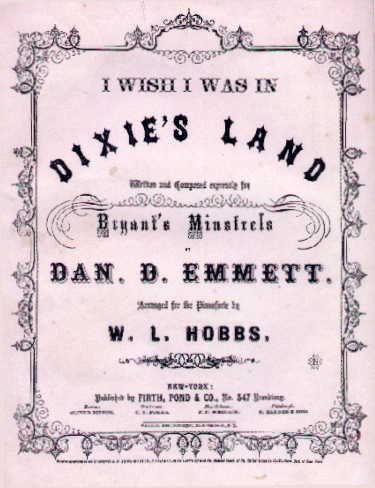
|
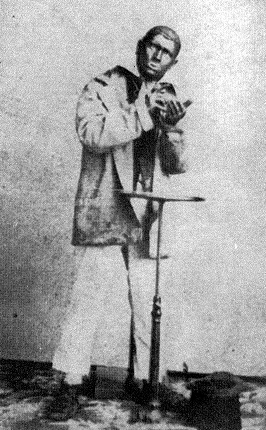
|
|
by Daniel Decatur Emmett Published in 1860, in New York by Firth, Pond & Co. Daniel D. Emmett was one of the most well-known composers of the Civil War era and was a pre-eminent banjo player. Dixie, or Dixie's Land, was one of the most popular songs of the day and became the anthem of the Confederacy. Dan Emmett was born in Mount Vernon, Ohio, on October 29, 1815. His mother, Sarah Zerick, was originally from Fredericktown, Maryland. His father, Abraham Emmett, was a blacksmith by trade and was born and raised in Staunton, Virginia. As a youth, Emmett learned the trade of a printer. But his real love was for music and he learned how to play the fiddle. In May of 1834, while he was in Cincinnati, Ohio, he signed up for three years in the US Army. He was actually only 18 years old and not eligible for military service. What probably enticed him to enlist was the chance of a musical career. While he was stationed at Newport Barracks in Kentucky, he studied drumming and practiced the fife. On March 3, 1835, he joined the 6th US Infantry, which was stationed at Jefferson Barracks, Maryland. He was "leading fifer" and continued his drum practice. As soon as it was discovered that he was underage, he was discharged, the official date was July 8, 1835. Army records listed him as a musician. After that he divided his time between his old and his new professions, working as a printer in Cincinnati in wintertime and travelling as a musician with circus companies in the summer. During the late 1830's, he was a member of a circus in Cincinnati and wrote his first Negro minstrelsy song - Bill Crowder. Emmett joined Bryant's Minstrels in New York in 1858. On April 4, the song "Dixie's Land" appeared on the stage of the Bryants. It quickly became the most popular song of the period, even becoming the unofficial anthem of the Confederacy. Where did the word "Dixie" originate? One popular explanation is that it refers to the whole area below the Mason-Dixon Line. Another popular explanation is that it refers to worthless ten dollar bills issued in New Orleans which were called "dixies" because of the word "dix" (ten in French) printed on them. Other songs by Emmett include: Jordan Is a Hard Road to Travel; Root, Hog or Die; Turkey in the Straw; Old Dan Tucker; and The Blue-tail Fly. In addition, Emmett wrote a fife instruction manual, a drumming manual and several plays. Emmett died on June 28, 1904, at his birthplace, Mount Vernon. |
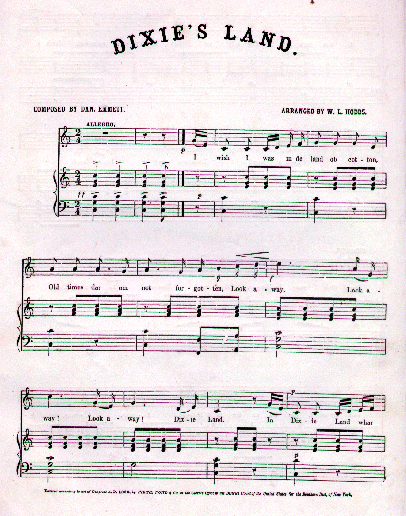
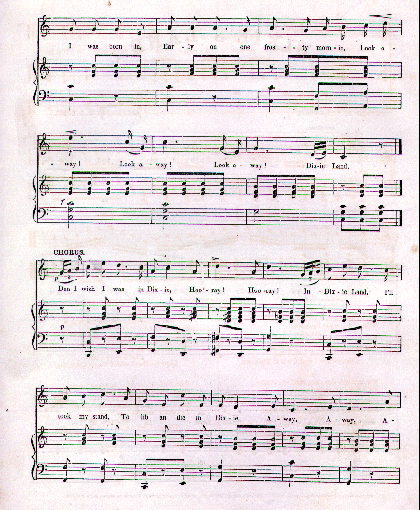
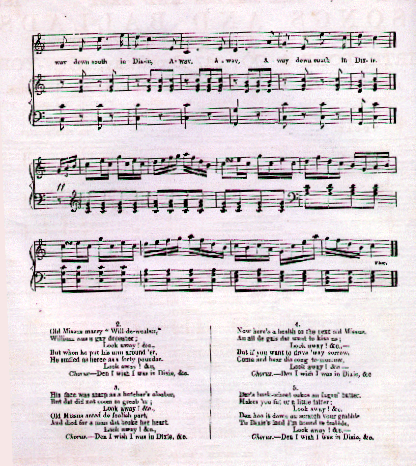
|
Send Email to the 77th New York Regimental Balladeers at:
jcquinn@webtv.net
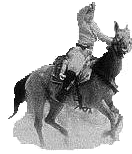
Entire Contents Copyright © 1999 77th New York Regimental Balladeers
Web Site by WA2FTI